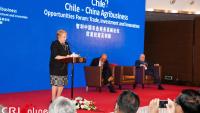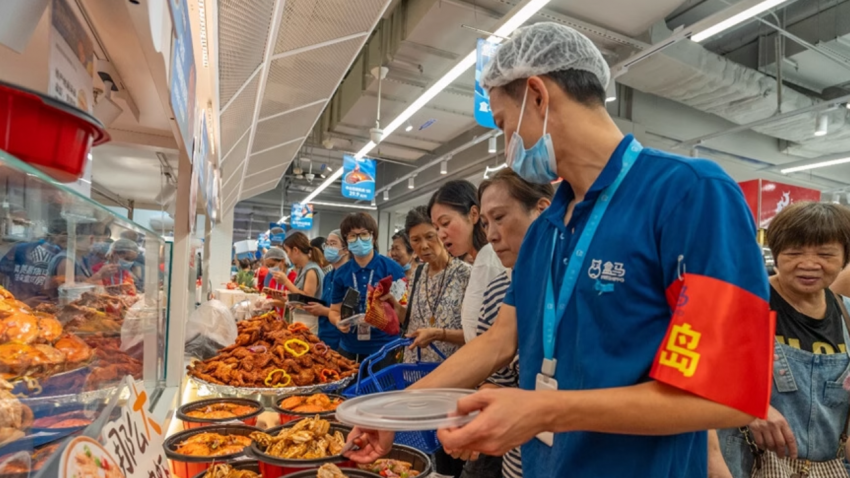You are here
Back to topRonald Bown on Chilean Fruits' Market Development in China

Mr Ronald Bown interviewed by Produce Report
The Chile-China Agribusiness Opportunities Forum took place on May 13, immediately prior to the opening of the Belt and Road Forum for International Cooperation in Beijing on May 14. This trade oriented event was organized by the Chilean Embassy in China, ProChile, InvestChile, China-Chile Business Council, China Association for International Economic Cooperation, and China Council for International Investment Promotion. Support was provided by a consortium of Chilean and Chinese trade associations including Chilean Fruit Exporters Association (ASOEX), Federation of Fruit Grower of Chile (Fedefruta), and China Chamber of Commerce of Foodstuff and Native Products (CFNA) etc.
Presentations during the Forum focused on the 3 major topics namely, Chile-China agricultural business opportunities, China’s agriculture investment opportunities for Chinese companies, and Chile-China agricultural innovations. Since China and Chile signed a bilateral free trade agreement in 2005, trade between the two countries have been growing very respectively. China is now Chile’s number one trade partner and the biggest export market for Chile. China is also the second largest source of imported merchandise for Chile.
Chile has recently surpassed the US and Thailand as the largest supplier of fresh fruits, in value terms, to China (just shy of USD1.2 billion, Produce Report, February 21, 2017). Taking advantage of the event, Produce Report interviewed Mr. Ronald Bown, Chairman of ASOEX on the recent developments and outlook of Chilean fruit’s business with China.
Mr Bown attributed the success of Chile’s fruit industry in developing the China market to its ability to take on a market driven approach to study what the market would need in the future and adopt consistent efforts to improve the results continuously. This approach is actually an extension of what has been applied in the US and Europe, spanning over the last 30 years. Using cherry as an example, Chile started to invest in market development activities in China 10 years ago. Such efforts started to bear fruit 5 years later. However, Chile has not slowed down its efforts. In 2016, it spent US$5 million promotion dollars on cherry alone.
Although the China market already accounts for more than 80% of Chile’s total production of cherry, Mr. Bown said that more promotion for the fruit in China would continue. There was no immediate concern that demand might exceed supply as cherry’s total growing area would continue to expand.
When asked if there were any product facing supply crunch, Mr. Bown said that blueberry has recently experienced tight supply situation as harvest was negatively affected firstly by the big freeze and then rain in 2016. However, the volumes of nectarines and avocados exported to China would be expected to increase this year, making up partly the deficit suffered by blueberry. Mr. Bown said that the biggest challenge facing export of Chilean fruits to China is climatic issue rather than competition.
China has given more countries and products the permission to import in recent years. This means there would be more competition. However, Mr. Bown did not believe this to be an issue. “Competition is good. I like competition,” said he. He went on to explain that when there were more parties promoting the same fruit, the impact of their combined efforts would be bigger. “sometimes increase in competition may cause price to come down a bit but volume would expand,” Mr. Bown added.
Looking ahead, Mr. Bown said that Chile has been working on seeking Chinese market access for other fruits but the total process would take a few years to complete. Pear would be coming in 2 years and citrus in 4 years. He said that Chile growers and exporters were always seeking to innovate such as enhancing the efficiency of using water resources, training workers for raising productivity, and developing new varieties. A new variety of raspberry has already been marketed in Europe and Chinese consumers may look forward to seeing this fruit available in the market in future.
Photo source: MZMC
















Add new comment